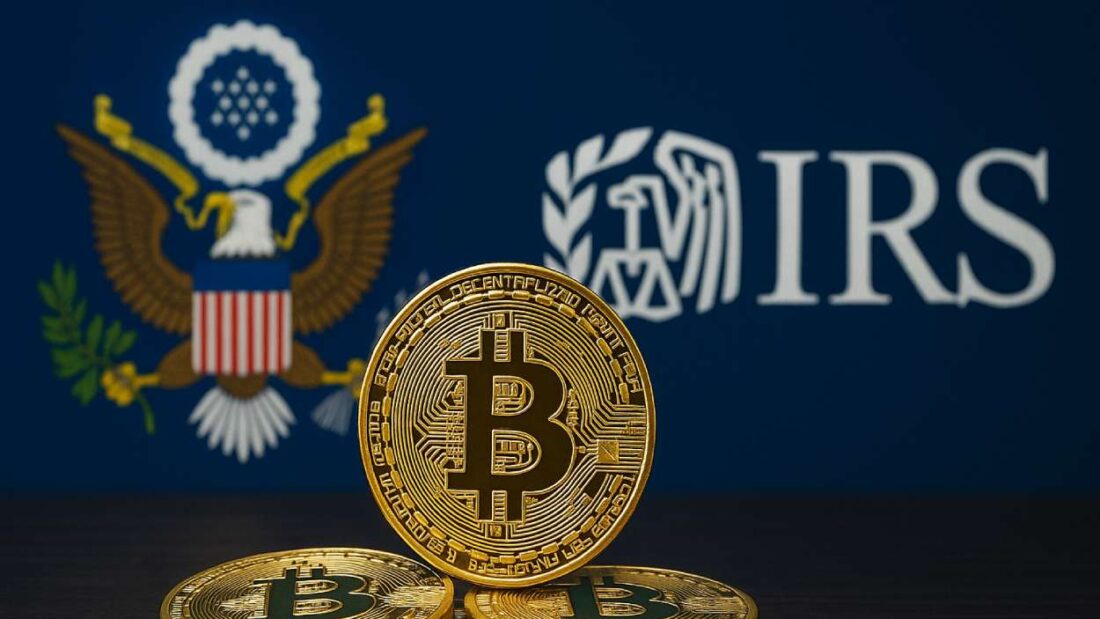The White House is reviewing a proposed IRS rule that could allow the government to access information on Americans’ foreign crypto accounts, potentially ending an era of offshore crypto secrecy.
Key Takeaways
- The IRS is seeking approval to join the Crypto-Asset Reporting Framework (CARF), a global standard aimed at curbing crypto tax evasion.
- The proposal would align the US with over 70 nations, including major economies and crypto-friendly jurisdictions.
- The rule would grant visibility into Americans’ foreign crypto holdings, pushing for greater tax compliance.
- While stricter rules are incoming, DeFi transactions remain exempt from new reporting requirements, for now.
What Happened?
A new IRS proposal has reached the White House, seeking approval to adopt international standards for taxing digital assets held abroad. The move would make the United States part of the Crypto-Asset Reporting Framework (CARF), developed by the Organization for Economic Cooperation and Development (OECD) in 2022.
BREAKING: Trump admin considering allowing IRS to access & tax foreign crypto accounts owned by Americans.
— Polymarket (@Polymarket) November 17, 2025
US Prepares to Join Global Crypto Reporting Standard
The White House is now reviewing a rule submitted by the IRS and Treasury Department that would allow the US to participate in CARF. This framework requires participating nations to automatically share data on their citizens’ crypto holdings to fight international tax evasion.
The proposed rule, submitted last Friday to the Office of Information and Regulatory Affairs, reflects a growing urgency from Washington to catch up with global standards. While 72 countries have pledged to implement CARF by 2028, the US is now formally taking steps to join them.
- Major CARF signatories include Japan, Germany, France, Canada, the UK, and crypto hubs like Singapore, UAE, and the Bahamas.
- The US would follow with implementation by 2028, just two years after its local reporting rules tighten in 2026 via Form 1099-DA.
From Policy Paper to Regulatory Action
This regulatory push follows a July report from the White House that recommended adopting CARF. The report emphasized that implementing this framework would deter US taxpayers from hiding digital assets offshore, while also ensuring US-based platforms are not put at a competitive disadvantage.
“Implementing CARF would promote the growth and use of digital assets in the United States and alleviate concerns that the lack of a reporting program could disadvantage the United States or US digital asset exchanges,” the White House stated in the report.
However, the administration clarified that any new rules should not impose additional reporting burdens on DeFi transactions.
IRS to Get Sharper Tools for Crypto Surveillance
Although the IRS has not labeled the CARF proposal as “economically significant,” the rule could reshape how crypto investors handle foreign accounts. The added scrutiny would make it harder to hide gains from offshore activity, and align crypto tax rules more closely with traditional finance.
Compounding the pressure is the rollout of Form 1099-DA in 2026, which will require US crypto exchanges to report extensive user data, including inbound and outbound transfers. According to US tax attorney Clinton Donnelly, this will be a tipping point.
Donnelly wrote on X:
CoinLaw’s Takeaway
In my experience covering crypto regulation, this is a major shift that most investors are not prepared for. The offshore loopholes that many relied on are closing fast. The US jumping aboard CARF is not just about aligning with other nations, it’s a signal that crypto is no longer in a regulatory gray zone. I found the detail about DeFi exemption interesting because it shows the government is still being cautious not to stifle innovation entirely. But let’s be honest, the era of anonymous crypto profits is winding down. If you’re holding crypto abroad, it’s time to get your tax affairs in order.


































































